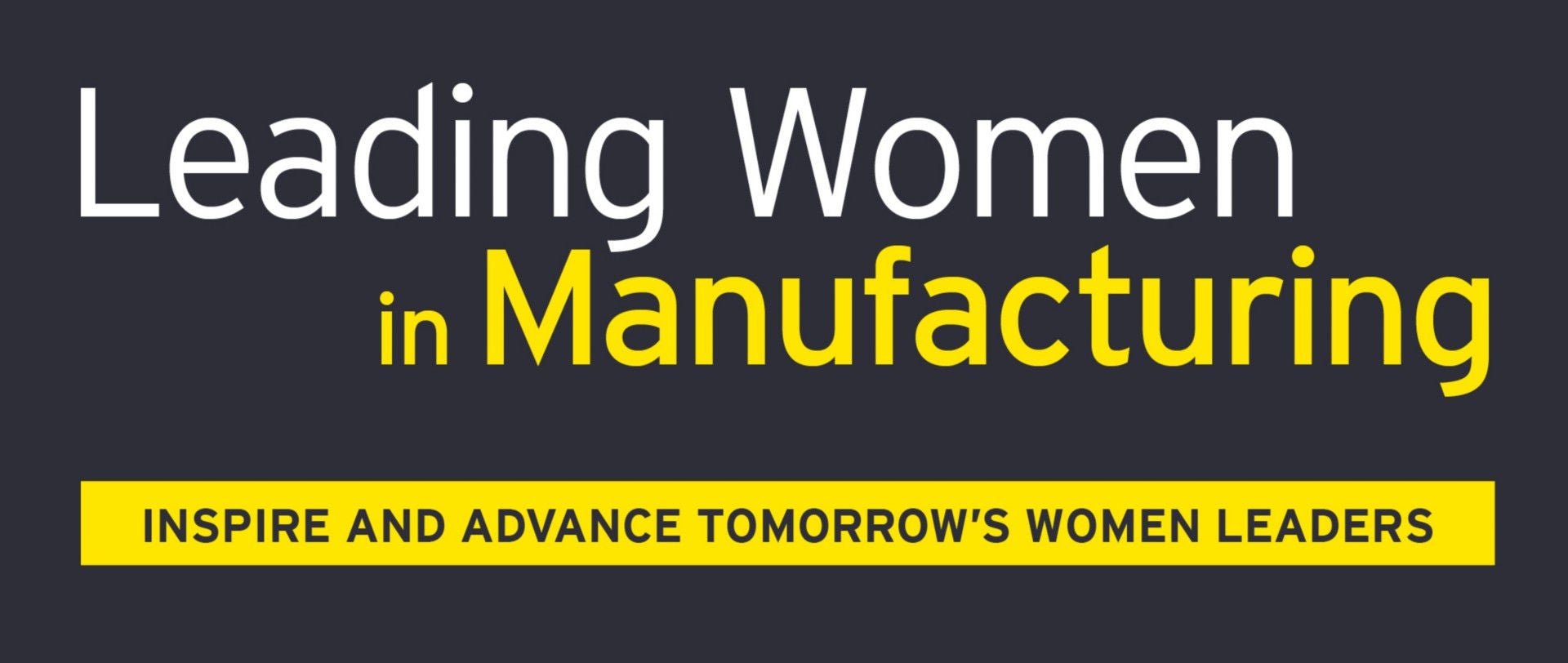EY refers to the global organization, and may refer to one or more, of the member firms of Ernst & Young Global Limited, each of which is a separate legal entity. Ernst & Young Global Limited, a UK company limited by guarantee, does not provide services to clients.
Watch Resolute Senior Vice President of Process Improvement and CIO Lori Kilgour discuss the challenges and opportunities she has faced in her career in the manufacturing industry and the advice she has for young women who are considering a future in manufacturing.
Leading Women in Manufacturing is a video series showcasing female role models in the sector who, by sharing their career journeys and lessons learned, are aiming to inspire and advance tomorrow's women leaders in manufacturing.
Heather Wright: Welcome, Lori. We’re so happy to have you here and very much looking forward to our conversation today.
Lori Kilgour: Thanks, Heather. I’m very happy to be here with you today.
Heather Wright: Great. Well, let’s get right into it. Can you tell us a little bit about yourself and the experiences you’ve had that have influenced your career path? We’re really interested in hearing about the key principles that have guided your success so far.
Lori Kilgour: Happy to, Heather. I’ve been in the forest sector for 28 years. But I can tell you that when I graduated with a chemical engineering degree, I didn’t know what I wanted to do. At the time, my uncle was an operator in a local paper mill, and he helped me land my first job as a process engineer on the machines. And in the first couple of weeks, working with the crews and the shift supervisor on shift, I learned very quickly that I loved pulp and paper, I loved manufacturing, and I loved working with and building and leading teams. So a couple of years after that, I took a role as a shift supervisor working for a pulp and paper manufacturer in a small town about 4,500 km from home. That sort of transformed my career. And from there, I took on increasing responsibilities within the forestry sector throughout North America, working for different companies. About six years ago, I took another chance, and I took a lead role for the IT department at Resolute. At the time, Resolute was going through a number of transformations, implementing very large IT projects, and I led those projects for Resolute. In my current role on the executive team with Resolute, I help Resolute grow and succeed by leading the IT department, as well as the asset performance group, in which we enhance the productivity and sustainability of our facilities across North America. I think that what I’ve learned over the years is that by combining technical expertise with communication, collaboration, caring for your employees, helping them to succeed, helping them to achieve their goals, it really leads to a collaborative leadership that enables innovation and transformation. And I would say that’s what really has helped me in my career and has guided me along the way.
Heather Wright: Lori, I love how you used those principles and built on them throughout your different roles. And you mentioned your uncle early on supporting you, but were there any women in your life that inspired you along the way?
Lori Kilgour: Yes, of course, I was blessed to be raised by a family full of big and strong women. My mother, my nanas, my sister, my cousin, my aunts. But I have to say that the biggest influence for me was my mom. She really taught me to be strong. She taught me to fight for myself while at the same time she taught me to be kind. She taught me to be caring. She taught me to be humble, supportive. And she taught me to do what was right. I’ve also had the positive influence of men in my life. My family has been extremely supportive of me, as well as mentors in my workplace throughout my career.
Heather Wright: And there’s nothing like family supporting you along the way. And switching gears, what are your thoughts on how the manufacturing sector can become more innovative and what role do you think women can play in driving that innovation?
Lori Kilgour: Yes. From past experience, change can be difficult, but I think with the right technologies, with the right leadership and the right communication, it can be done. Manufacturing 4.0 has come a long way in the past couple of years. There’s also been an explosion of digital tools that are especially designed for the manufacturing industry. That, coupled with the new manufacturing processes, I think will enable all of our manufacturing operations to improve our business performances. But being more innovative takes technology, processes and people, and I think that’s where women come in. Women are uniquely equipped to create the work environments in which diverse teams can succeed. They can also help us with the communications around the reasons for change, and they can use their drive for excellence to help lead us into the future.
Heather Wright: And Lori, tell us how your organization creates those opportunities for change for women.
Lori Kilgour: At Resolute, we recognize that our success depends on our ability to attract, develop and retain top-quality employees. And for us, our focus has been on leadership and human resource practices that enable a workforce that is diverse and inclusive. So what we’ve done so far is we’ve targeted hiring women, especially in our operations. We have hired more women this year than we have in the previous year, and we’ve also increased our percentage of women working for Resolute. We’ve adapted our workplaces to be more inclusive. We work with local organizations that support women. As well, we train and educate all our employees on respect and dignity. We’ve recently put in place a diversity and inclusion and equity committee, and I’m looking forward to the changes that they bring for us. And to hold ourselves account, we have a diversity policy in which 25% of our board members are represented by strong, influential women, and we have a commitment to increase that to 30% by 2024.
Heather Wright: Lori, knowing what you know now, what advice would you have for your 20-year-old self or other women that are in the STEM education systems for what they would do with their career?
Lori Kilgour: Yes, I would say be persistent. Take chances, believe in yourself, even if that means making mistakes, and always get back up stronger. Build a team, build a crew, build a squad around you. Look for mentors, collaborate with others and help others around you succeed. At Resolute we call that succeeding together, and it’s really built on teamwork with a winning attitude, with people that truly desire to help each other. At the end of the day, it really takes hard work, and to be a leader, you need to go that extra mile. You need to welcome and encourage ideas. You need to communicate with your teams. You need to support them to drive change and make improvements every day.
Heather Wright: Great ideas and great advice for young women. And so, what do you think the future of manufacturing holds for young women entering the workforce today?
Lori Kilgour: Yes, throughout my career, I’ve often been the only woman sitting at the decision-making table. And it should come as no surprise that I would like my team and my employer to reflect society and the community and the customers that we serve. I strongly believe that with more diversity in our decision-making processes, in our execution processes that will lead to improved business results for our company. Many companies like Resolute, we believe that in order to improve our sustainability, we need to increase our commitment to inclusion and diversity. So I think the future is very bright for women. I think it’s an exciting future in manufacturing, and I look forward to them sitting at the table with me.
Heather Wright: The future is bright for young women today, and I can’t wait for everyone else to hear about you, Lori, and your successes and experiences in the manufacturing industry. Thank you very much for joining us today.
Lori Kilgour: Thank you very much, Heather. It’s been a pleasure talking with you.
Our latest thinking
Attract, recruit and retain inclusively to drive manufacturing success
Manufacturers that put human needs at the heart of talent acquisition, development and retention frameworks are poised to thrive.




